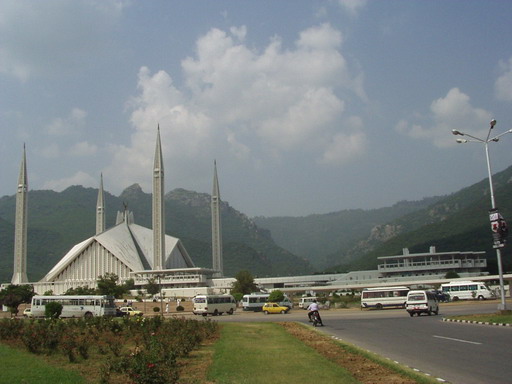The Role of Southasian Islam in the Islamic World:
the Dār al-'ulūm Deoband (India) and the International Islamic University Islamabad (Pakistan)
(2004-05)
|
|
The project intends to explore the impact of reformist Islamic schools in South Asia on the Islamic world, concentrating on students from Asia and Africa in terms of ‚South-South‘ Pan-Islamism. It pursues the question of whether South Asia is to become a new centre for the dissemination of religious knowledge in the Islamic world and how this role would affect the interpretation and practice of Islam. It focuses on two Islamic institutions of higher learning, the more traditional dar al-'ulum Deoband in northern India and the modernist International Islamic University (IIU) in Islamabad, Pakistan, both of which are well-known for their regional and transnational standing. The inquiry concentrates on the specifics of their international networking and their interaction with local Islamic traditions. It will seek to highlight the changes brought about by their international contacts both in the schools and in their teaching. It will reflect on their distinct hermeneutical understanding of Islam.
 |
In order to access the transnational dimension of ‘South-South’ cooperation in Islam, the adoption of a ”multi-sited research” approach is envisaged, as used in ethnological studies of transnational communities (Marcus 1995), partly following the graduates to their places of return in Southeast Asia and East Africa. Besides extensive field research at the two Islamic schools, it is planned to conduct brief periods of research at the International Islamic University in Malaysia and its counterpart in Khartoum. Contacts with Deobandi institutions there will also be explored if possible.
|
|
The hypothesis on the expected results assumes that both institutions (Deoband, IIU) play an active but distinctive part in international Islamic educational and activist networks. Beside transmitting religious knowledge, the IIU also seems to be part of established bourgeois education, offering formal degrees in law and management. At the same time, its students are reported to have developed affinities with some forms of activist Islam in Pakistan, such as the the Jama'at-i Islami, or Tablighi Jama'at. Foreign students at the IIU seem to be quite isolated from the local environment and therefore from non-reformist, that is, Sufi-inspired Islamic practices. It may be assumed that local conflicts in the countries of origin occasionally intervene in student life, as in the case of the Chechen and Afghan students. In the international context, the IIU feeds into a separate network of exchange and influence jointly formed with other International Islamic Universities and their affiliates.
|
|
In contrast, the international impact of the Deoband seminary is felt less on the institutional and more on the normative side of Islamic education and activism. Its graduates seem less prone to becoming directly involved in radical Islamism or international Islamic institutions. The social background of its students is much more humble. Problems of their countries of origin do not take up much room in seminary affairs. Deoband students, however, are much more involved in local religious and cultural life, such as when they face Hindu extremist campaigns to convert local Muslims. They have the experience of sharing life and space with other religious faiths.
Field research will include visits to both institutions (Deoband, IIU), working at their archives, libraries and talking to students and teaching staff. The pictures were taken during a planning trip to Deoband in December 2001, discussing the project application with some teachers, staff members and students. Questions and remarks may be sent directly to the researcher: dreetz@rz.hu-berlin.de.
(c) Copyright 2002, 2004 for the pictures: Dietrich Reetz - permission to use them cannot be granted at this stage of the project. Updated Oct. 2, 2004.